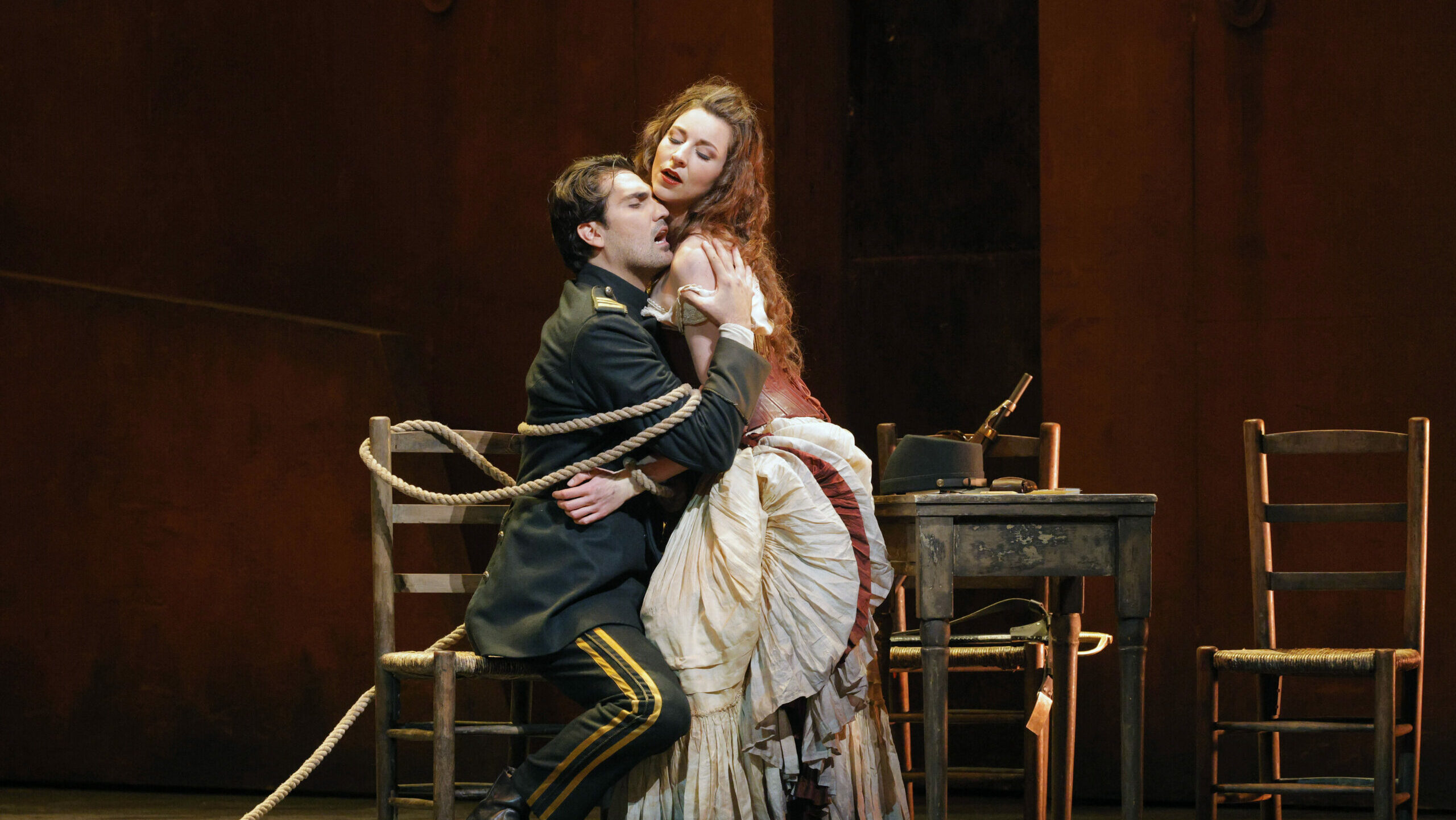
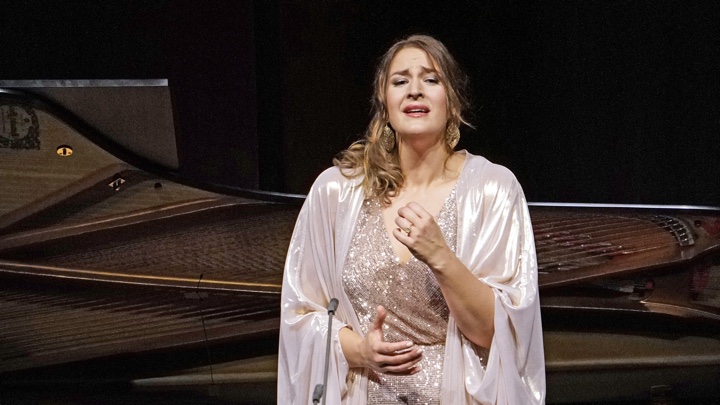
That is, until I saw Lise Davidsen’s recital with pianist James Baillieu at the Met on Thursday evening. I’m surprised the auditorium is still standing after the sonic battering it received from Davidsen’s earth-splitting voice—a veritable nuclear weapon, even in a hall as large as the Met.
Perhaps the only thing louder than Davidsen’s voice was the whooping ovation she received after a tremendous mainstage recital, balancing operatic set-pieces with familiar favorites from the Northern European art song repertory.
Davidsen’s star has been on the rise for a while now. I saw her Met debut in Pikovaya dama back in 2019. Even then, I was impressed by the raw power of her voice, but skeptical of her ability to shape it into something beautiful.
However, since then, Davidsen has appeared in several roles on the Met stage, each time proving herself a consummate musician and a captivating performer. A particular highlight, for me, was her Rosenkavalier, which revealed a sparkling maturity in both voice and interpretation.
Indeed, Davidsen is at her best in this high Romantic repertoire—music that gives her voice room to maneuver.
The Grieg set which opened the recital was perfect in this regard. At its loudest, Davidsen’s voice has a white-hot quality: It can be arresting, breathtaking, even piercing, but not always particularly subtle.
But Grieg’s lieder found a warmth in her voice that I’ve not heard before. At once playful and restrained, Davidsen approached these songs (three in her native Norwegian, and three in German) with a welcome levity—a cultivated effortlessness that allowed her to show off corners of the voice otherwise unexplored on the grand operatic stage. This frank interpretation lent a refreshing simplicity to the otherwise turgid 19th-century poetry.
Davidsen’s voice was at its most direct when it is at its softest. Anything loud and high tended to distort vowels and obscure consonants. It’s the kind of voice where even the smallest musical gesture has immense resonance. And Grieg’s music gave her plenty of opportunity to take her foot off the gas and lean into the text: her “Drømme” had a floating quality that was particularly well suited to Grieg’s fly-by-night harmonic shifts.
Davidsen released this same set of Grieg songs on 2022 album for Decca. I must confess that I was not particularly impressed by this recording. Frankly, I found it a little dull. But Davidsen’s voice is truly best in live performance. Half the experience is the sheer presence of the instrument—its luminous effect in the space—paired with an endlessly endearing stage presence. Hearing these songs fill the hall—at once tender and sonorous—was a much more rewarding experience than hearing them on CD.
Davidsen is a natural entertainer. Even in the recital format, she remained an uncommonly expressive actor, gesturing and even perambulating with relative ease. There was something unaffected or unpretentious about her performance: she never mugged or hammed, bubbling with a kind of naïve energy that made the (relatively well-known) repertoire feel funky and fresh. Between sets, she conversed freely with her audience, dispensing a charming mix of humble brags and self-deprecating jokes.
The high points of the concert, for me, were all in the first half of the program. A pairing of Verdi arias brought a touch of high drama to the proceedings. Her “Morrò, ma prima in grazia” from Un ballo in maschera offered a thrilling sense of intimacy, balancing luscious melodic sweep with moments of quiet reflection. But it was her performance of the “Ave Maria” from Otello that was the real showstopper.
Here, she allowed her voice to take on a vulnerability, especially in the high register, lending an elegant arc to the ascent to the final A flat. But the spell was cast at the very beginning of the aria, her sotto voce chanting at once crisply articulated and lustrously intoned.
Davidsen is due to headline the revival of Forza del destino at the Met in the spring. If this recital is anything to go by, Davidsen will prove a gifted Verdian, with a strong command of the Italianate style.
A set of four Sibelius songs formed a compelling complement to the Verdi fare. Here, her voice took on a newly hardened veneer, her phrasing more roughly hewn, her execution more fiery. Baillieu and Davidsen emphasized (even exaggerated) Sibelius’s musical contrasts—dynamic shifts were pushed to extremes, registral jumps were outrageously emphasized, tempo changes were consistently jarring.
And while some passages felt a tad rushed (her “Den första kyssen” surged forth with almost irrepressible vitality), I did enjoy the restless energy of the interpretation—the quickfire emotional shifts, the sudden musical upheavals. These were particularly prominent in “Flickan kom ifrån sin älsklings möte,” which began with a honeyed naïvété and culminated in a guttural growl.
Davidsen did not shy away from the darkest emotional recesses of the lyrics, relishing their moody depictions of heartache and death. Sitting on the snarling edge of the soprano’s voice, her performance had a paroxysmal quality—each song treated like three-minute trauma dump.
Her “Dich, teure Halle,” by contrast, was unapologetically upbeat, delivered with a beaming smile and arms flung wide—as if to embrace her (particularly adoring) audience. Here, the size of her voice worked to her advantage, projecting the grandeur of the eponymous hall by its sheer capacity to fill the space. This rendition was sullied only by Baillieu’s rather muddy accompaniment, which felt at once mannered and indistinct.
The second half of the concert (with some notable exceptions) was somewhat less successful. After an icy (but rather effective) “Akh! istomilas ya gorem,” Davidsen launched into a dreary set of Schubert lieder—for me, the low point of the concert.
Davidsen introduced her Schubert set by making a point about the malleability of Schubert’s musical style: These songs, she argued, could be sung by any singer of any fach, with each voice bringing something new to these “timeless” melodies.
Davidsen herself proved this wrong. Davidsen is a generous performer, certainly, but not always a particularly creative one, and her Schubert interpretation lacked the zest necessary to breathe life into these songs.
Davidsen sang best in repertoire with a degree of inbuilt melodic and harmonic complexity: from Sibelius’s moody dissonances to Strauss’s labyrinthine melodic contours. In these cases, Davidsen was very good at bringing out the interest already in the music, accentuating contrasts, finessing their thorny edges, and lending them a necessary weight.
But Schubert’s lieder were simply not written for such a voice. Intended for salon performance, they favor a singer who can trade effectively on both their intimacy and their simplicity. I felt that Davidsen’s interpretation—while technically faultless—lacked the kind of daring essential to any good Schubertiade.
The strophic lieder, “An die Musik” and “Aller Seelen,” were particularly colorless: Davidsen offered little variation between verses, instead offering a beautiful (but rather monotonous) pianissimo. But it was “Erlkönig,” Schubert’s great polyvocal micro-drama, which proved most disappointing. This song can be a real tour-de-force for the chameleonic vocalist; but Davidsen’s rendition offered little distinction between screaming child and bloodthirsty demon.
Rather, it was Baillieu who stole the show during this set, dispensing the churning accompaniments to “Erlkönig” and “Gretchen am Spinnrade” with electrifying panache.
Her Strauss set fared much better, with particularly impassioned renditions of “Zueignung” and “Cäcilie.” Here, her voice took on a blooming quality that she seemed to be working hard to repress during the Schubert: phrases felt expansive, soaring, with a radiant gleam in the middle register. If her “Morgen” felt a tad over-indulgent in its rubato, Davidsen had surely earnt it after a yearning, dreamy “Befreit.”
Her final set—“Heia, in den Bergen ist mein Heimatland” from Kálmán’s Die Csárdásfürstin and “I Could Have Danced All Night” from My Fair Lady—were too ham-fisted for my taste, although Davidsen was clearly having a marvelous time, gleefully dancing along to the music (one wonders what Henry Higgins would have made of her prominent Nordic vowels!).
I was particularly taken by the warm, almost celebratory atmosphere in the hall on Thursday night. Judging by the cries of “We love you Lise” which accompanied the soprano’s first encore (a bracing, haughty “Vissi d’arte”), Davidsen has clearly built up a special rapport with the Met audience over the last few years. We can only hope that this amity translates into robust ticket sales for Forza del destino in the new year.
Photos: Karen Almond / Met Opera


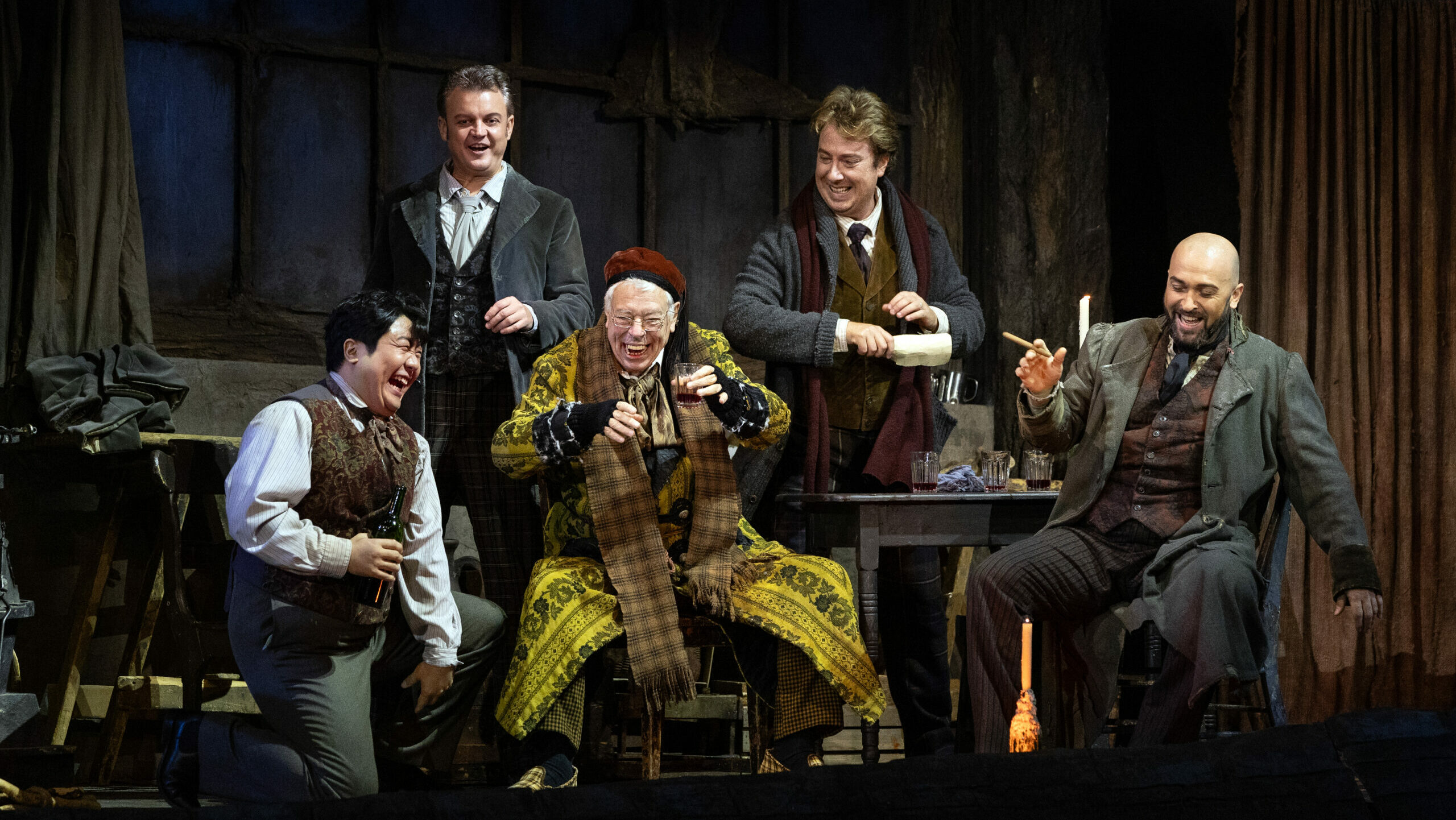
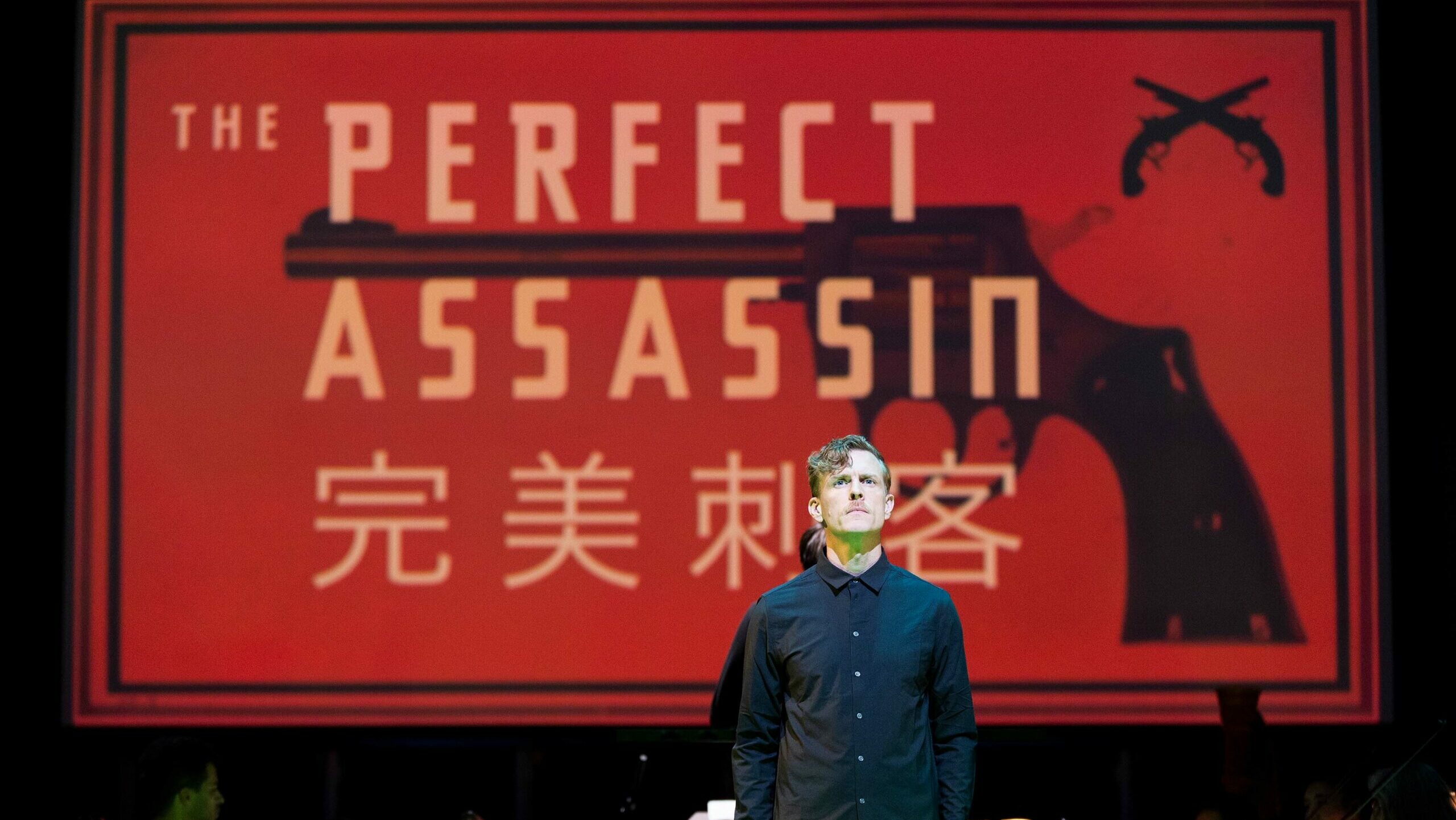
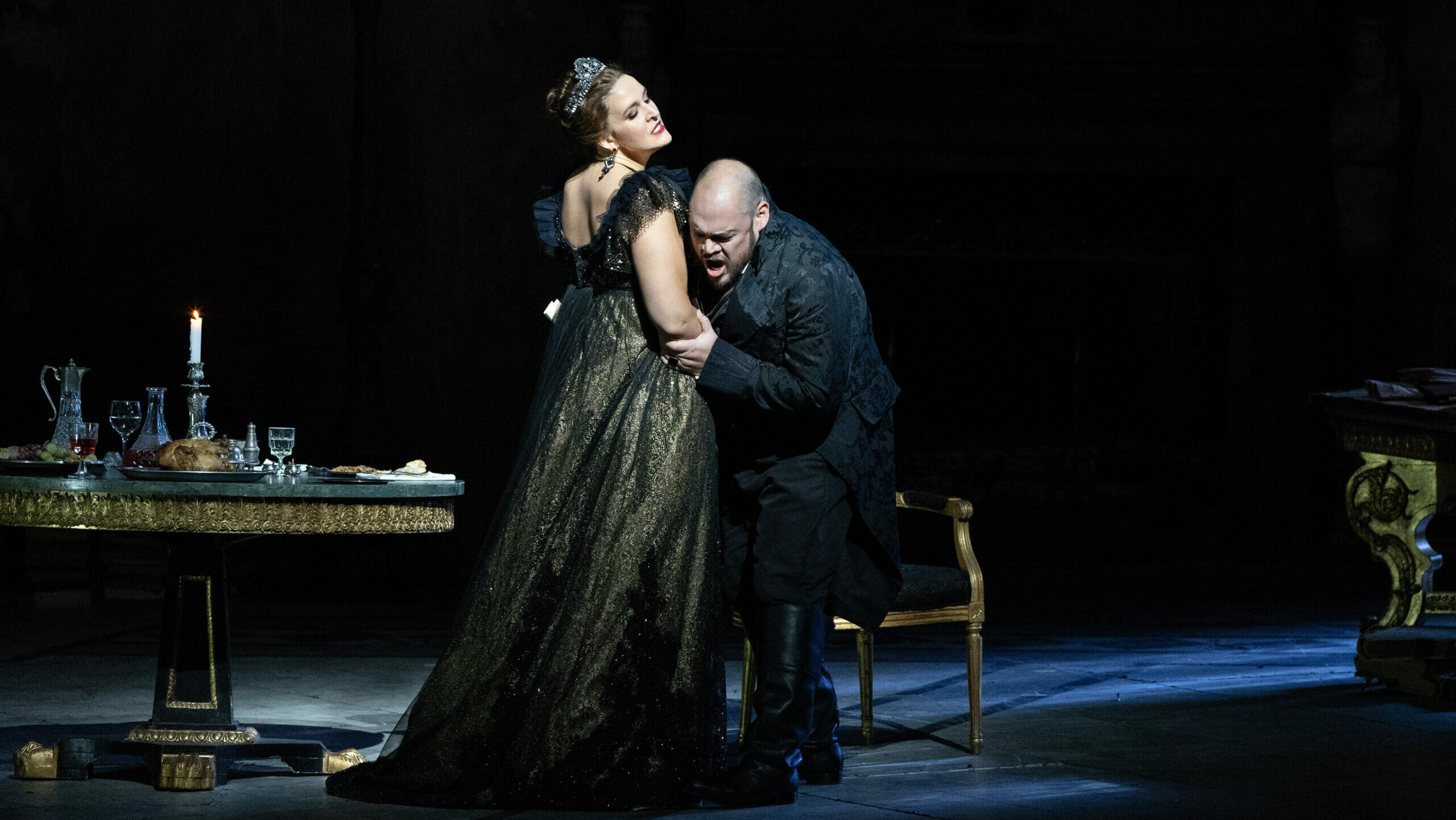


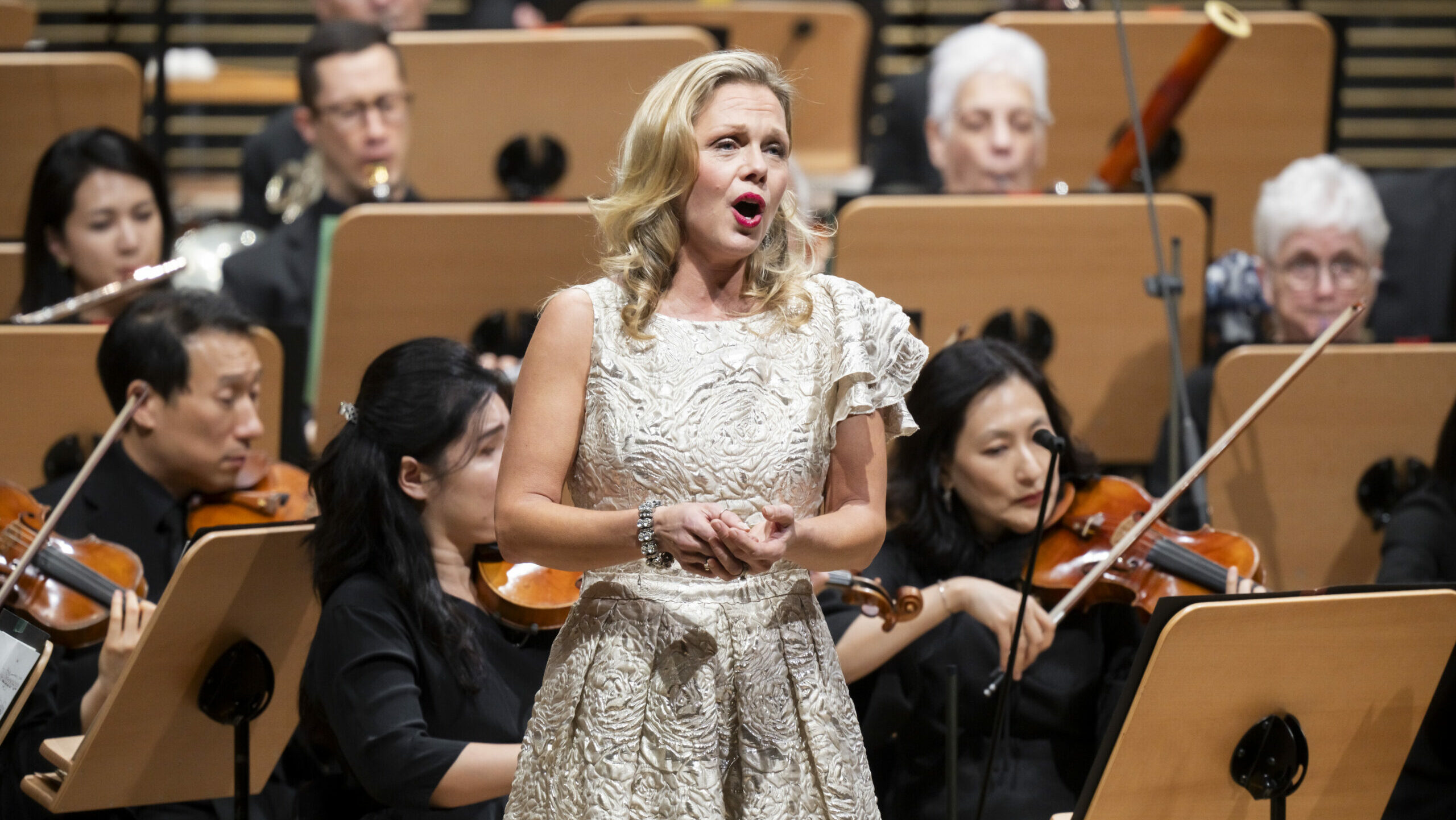
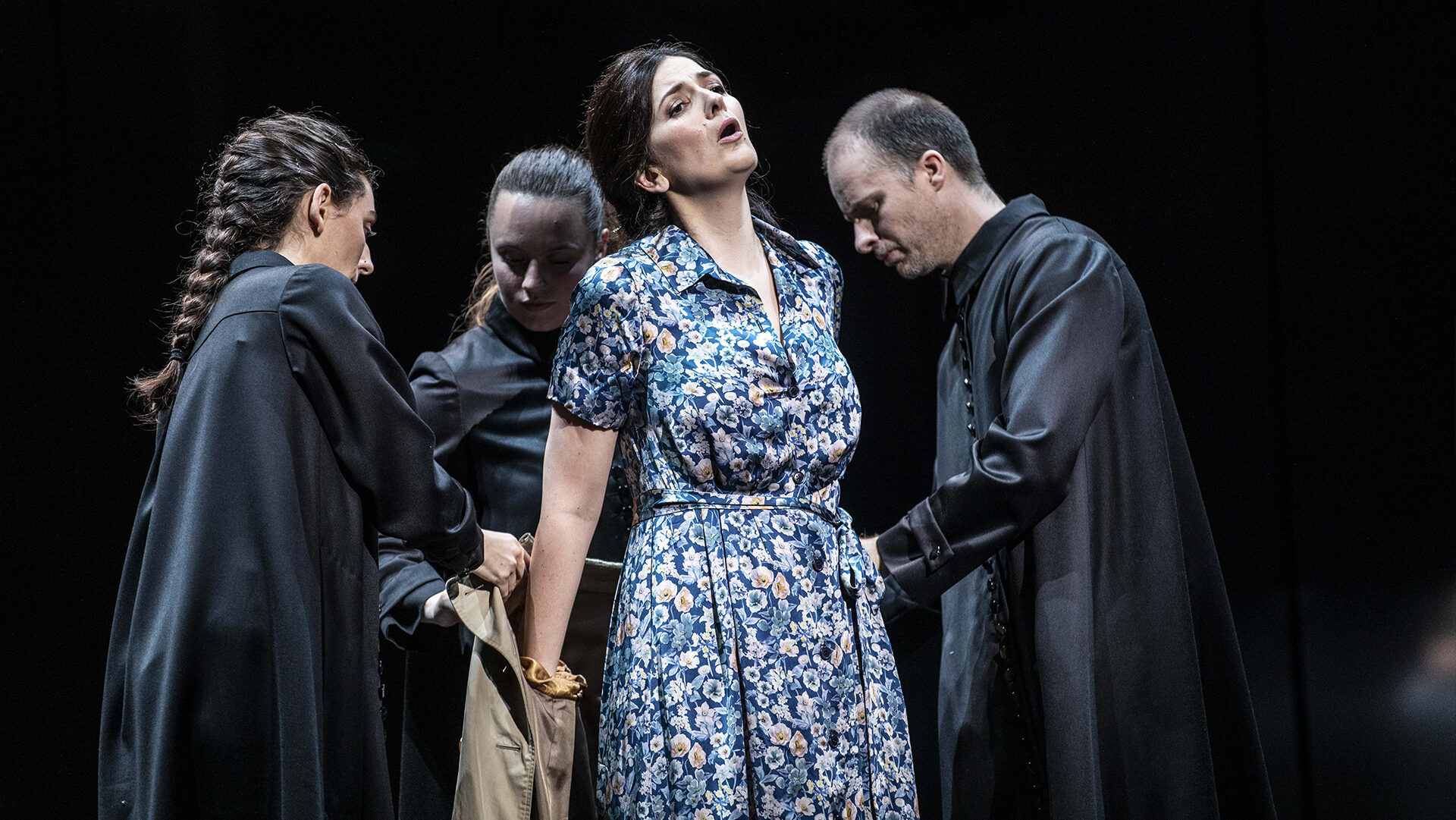
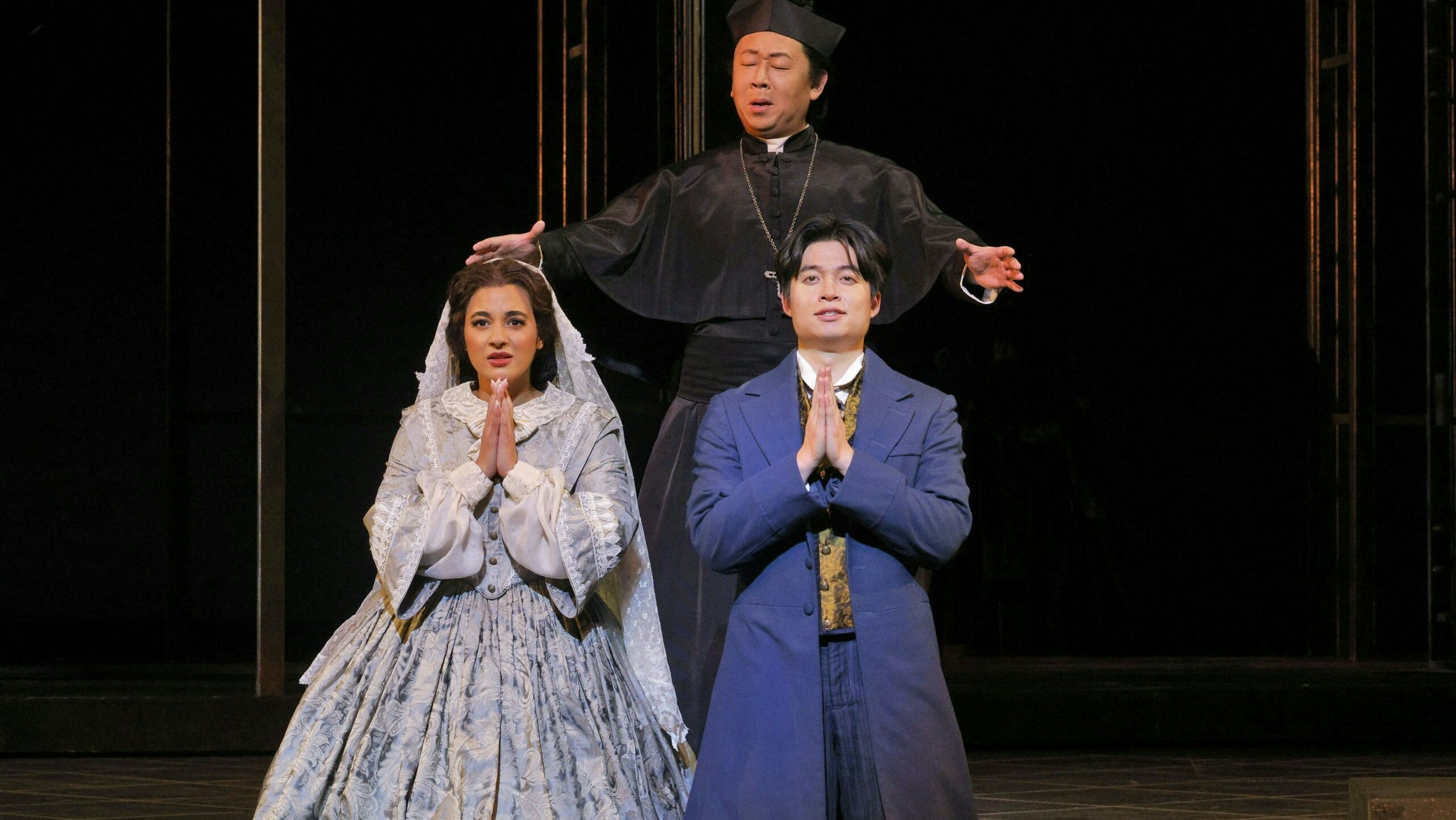
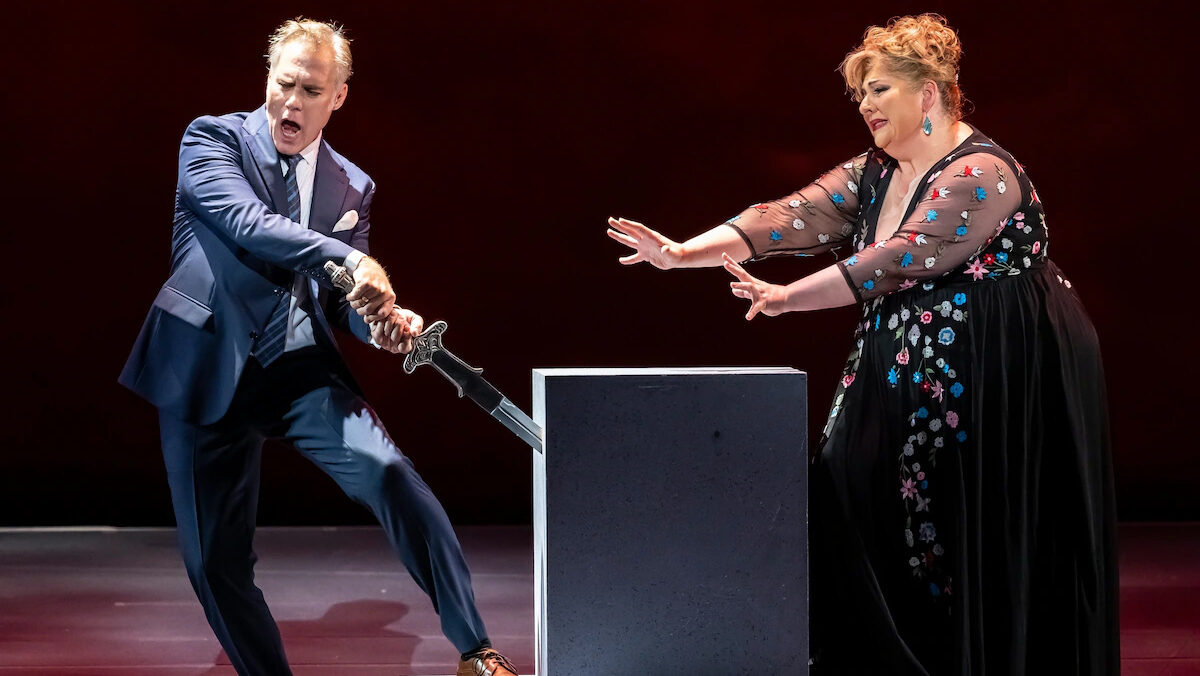
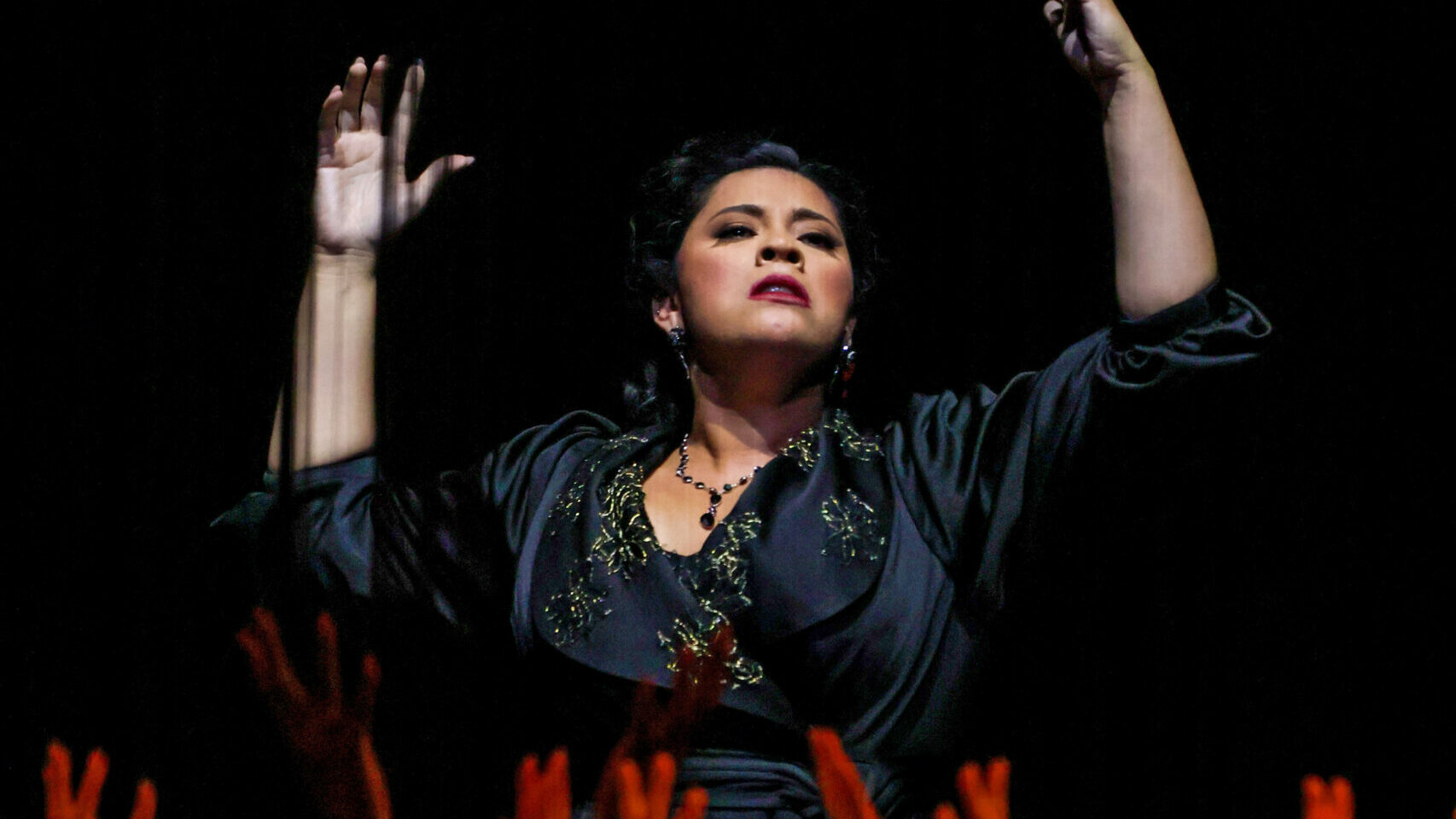
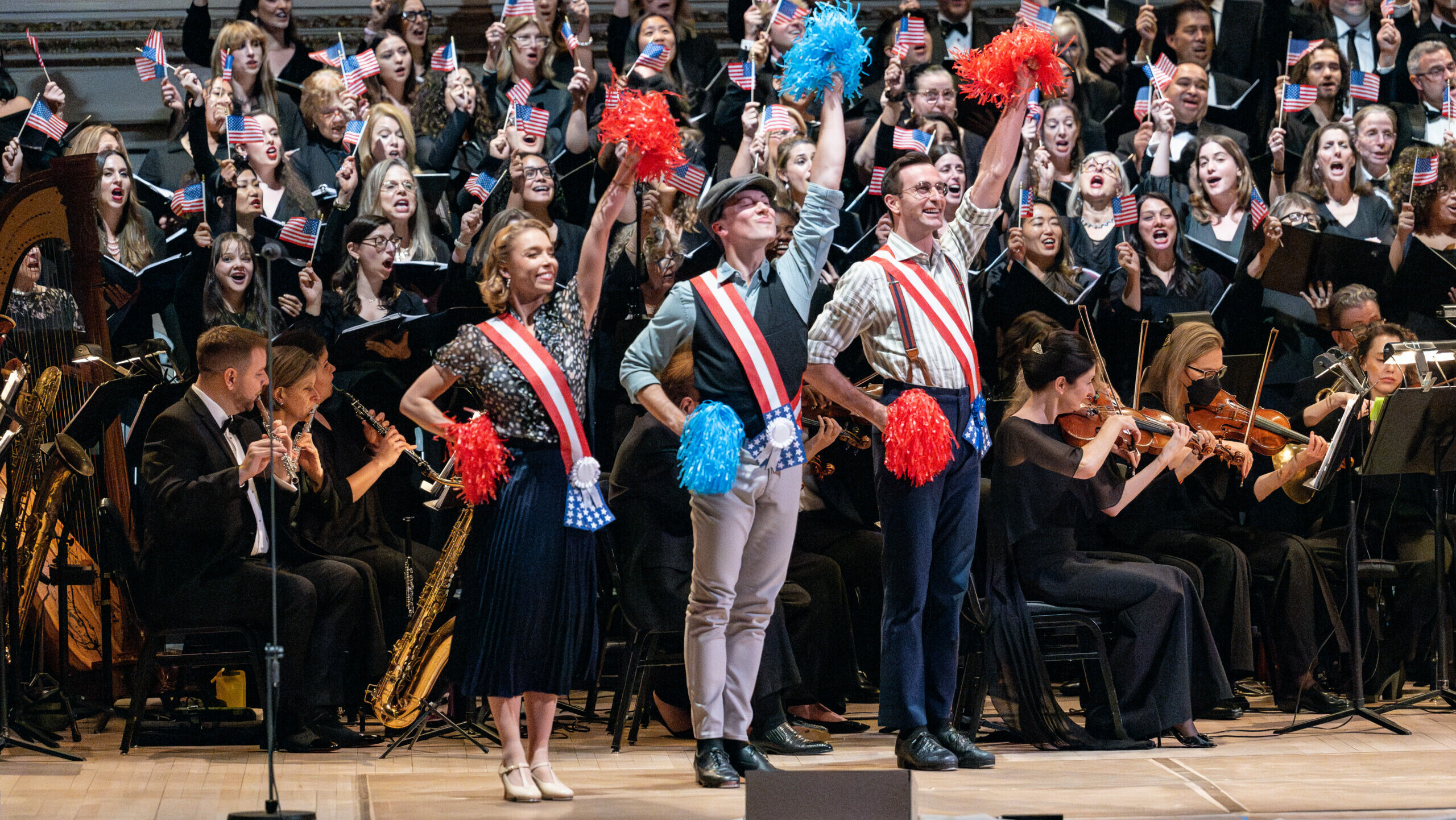
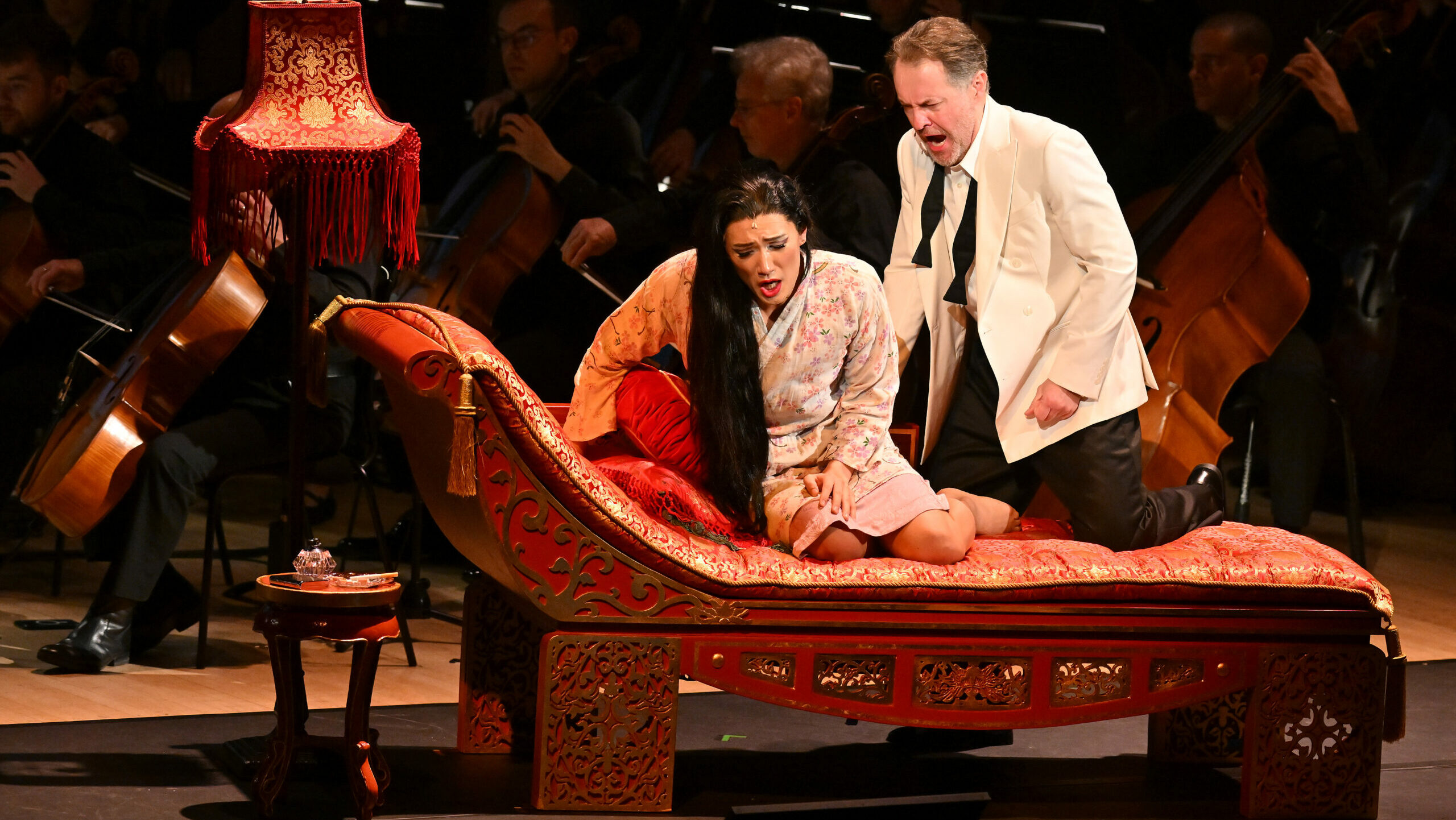
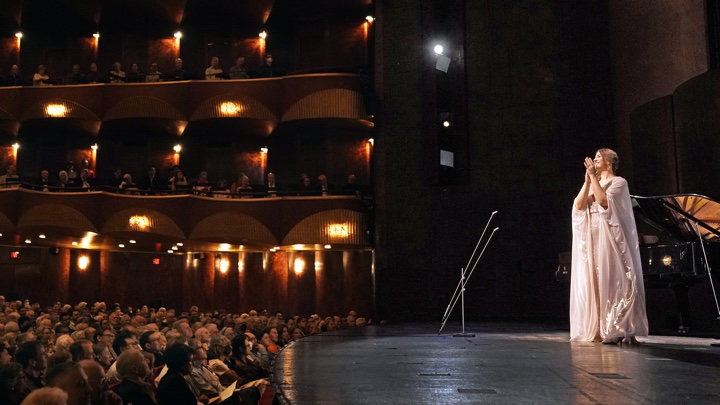
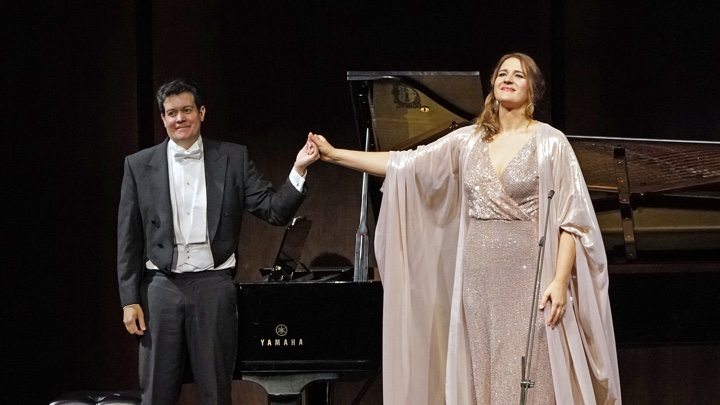
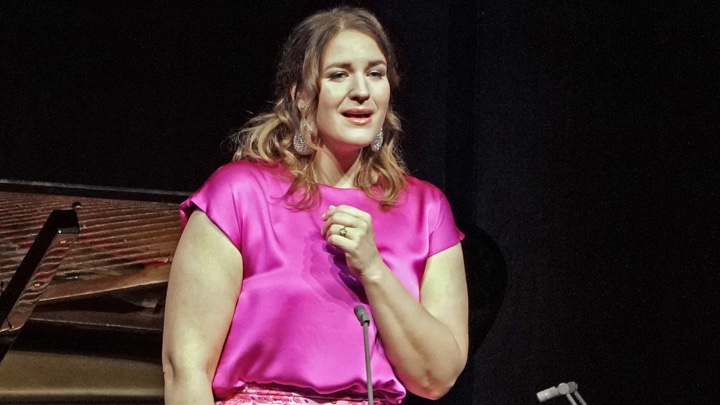





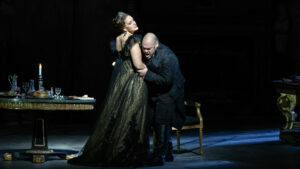
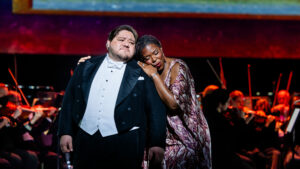




Comments